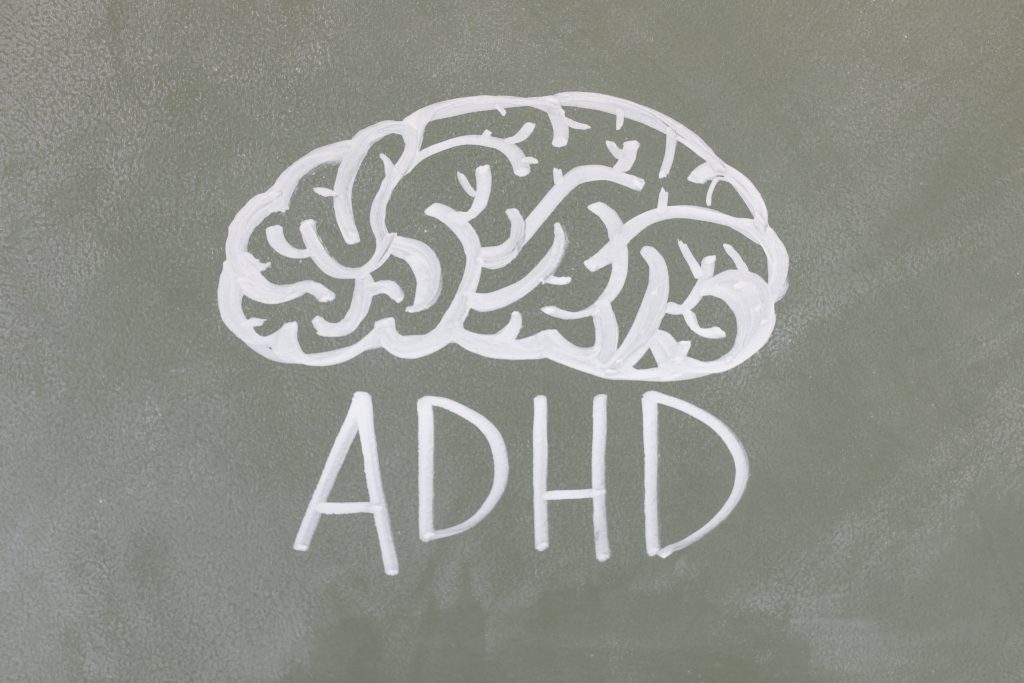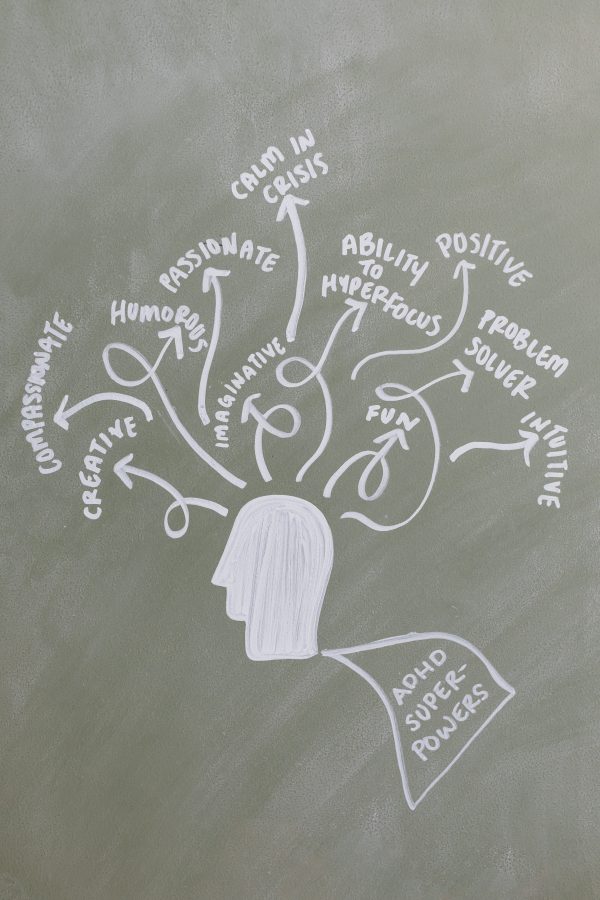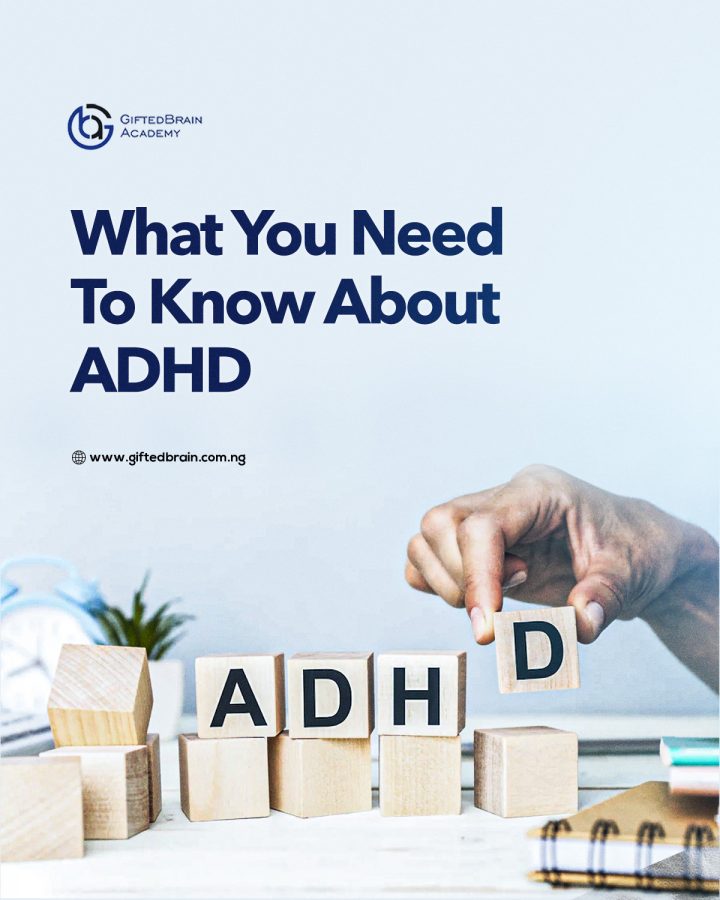There is no better time to talk about ADHD than this moment, this is because it’s World Mental Health Month. It is usually celebrated every year on the 10th of October.
The purpose of this is to ensure an increase in awareness of mental health and wellbeing. Protecting our mental health should be our utmost priority because our mental stability is as important as our physical wellness.
You might ask yourself- what is ADHD and why do I need to know about it?
In this article, we will be answering those questions while going a bit further to discuss the causes, types, risks, complications and treatments of ADHD.
But first, let’s understand what this acronym means.
what is ADHD?

It means Attention Deficit Hyperactive Disorder, also known as Attention Deficit Disorder. It is a condition that affects people’s behaviour. It is known to be a common neurodevelopmental disorder which affects the way a person’s brain processes information and causes differences in the development and function of the nervous system.
People with ADHD are most likely to have issues concentrating, are usually forgetful, have problems sleeping and are highly sensitive. But as easy as this sounds, the effects that the disorder has on a person cannot be over-emphasized as it affects their work, performance, self-esteem, school, relationships and even more.
why do you need to know about ADHD?

According to the World Health Organisation (WHO), around 5% of children and 2.5% of adults are affected by this condition globally. This means that there are millions of people with ADHD around the world, some of whom are aware and others who aren’t.
What’s even more interesting about it is that less than 20% of youths are aware that they have it and only about 4% of those who know are getting treatment for it. Research has it that the condition might go unnoticed in people aged 18 to 44 years. This is because the symptoms of the disorder are very prevalent in our everyday activities.
Forgetfulness, losing things easily, having issues with finishing tasks or classroom assignments, being unattentive, especially when it comes to a subject or a lecturer that you don’t like being around, difficulty sleeping and a lot more; all these are things that happen to us every day and it’s quite normal not to read meaning to it nor believe them as symptoms of the disorder.
Why do you need to know about it? You need to know about this disorder because statistically speaking there is a great possibility that you already know someone who has it, or in other cases, you might just be the one. A close friend, a relative or a spouse, these are people dear to us. And raising more awareness about this is the best way to help them.
Also, you need to know about it because people who aren’t diagnosed early enough are likely to live frustrated lives while others who are misdiagnosed with depression or anxiety problems will be undertreated causing even more harm to their health.
This leads us to the next question. How can I identify a person that has ADHD?
There are three primary characteristics or types of Attention Deficit Hyperactive Disorder. They include;
- Hyperactivity impulsive type: People with this type of disorder are most likely to be very impulsive and hyperactive. They also display inattentiveness and lack of focus but are most prominently restless and fidgety, talking a lot and fast, having trouble taking relaxing tasks, generally impatient, impulsive and speaking without thinking. These above traits make learning even more difficult. According to Mini ADHD Coach, males are most likely to be diagnosed with this type of attention deficit disorder. To receive a diagnosis of this kind, a child up to the age of 16 must have at least 6 symptoms and if 17 and above must have at least 5 symptoms, for a period of 6 months.
- Inattentive type: They are also called “daydreamers” or the “space cadets”. People diagnosed with this type of disorder are most likely to be inattentive. They will find it difficult to maintain attention, have struggles remaining focused and have difficulties following detailed directives. They are also liable for being hyperactive and impulsive. Inattentive ADHD is most common among girls. To be diagnosed with this type of disorder, a child up to the age of 16 or under must show at least 6 symptoms for at least 6 months. And if 17-must show at least 5 symptoms for the period of 6 months.
- Combined type: This is the most common type of ADHD. Those who suffer from this disorder have both signs of the inattentive and hyperactive disorder type. He/ she would find it hard to concentrate and focus and have issues with self-control.
With the above explanations, one might just wonder the cause of this tremendously frustrating condition. Join me in unravelling this mystery.
causes of ADHD
While the cause of ADHD is yet to be known, research efforts continue.
Factors that might be involved in the development of this condition include:
- Genetics: Research has it that attention deficit disorder shows a strong genetic link and might be a major factor in the cause of this disorder. According to Medical News Today, genes may account for 74% of the cause of the disorder. Research also shows that parents and siblings of someone with ADHD are more likely to have the disorder themselves.
- Environment: Certain environmental factors might increase the risk of ADHD e.g., maternal smoking during pregnancy, brain injury and duration of breastfeeding. However, the best working or learning environments for people suffering from this condition are well-structured and conducive learning areas, as noisy and unorganized places might be overly stimulating for them.
- Problems during development: Problems in the nervous system play a role. For more information, click here.
8 complications of ADHD when not Treated

Untreated ADHD can have detrimental effects on those who suffer from it. When it is not treated effectively, it causes more harm than good.
According to Mayo Clinic, a child who is diagnosed with ADHD and does not treat it at adulthood might most likely lose 7 years of his/her life expectancy. This is because of the stunt of development during those 7 years.
Also, according to Mayo Clinic, a person who never gets treated might lose 13 years of his/her life expectancy.
This is why early diagnoses and treatment should be carried out. The effects of untreated ADHD include;
- Poor school or work performance
- Unemployment
- Frequent car accidents or other accidents.
- Relationship Problems
- Financial Problems
- Self-esteem issues.
- Mental health disorders like anxiety or depression
- Suicide
How can ADHD be Treated?

Although Attention Deficit Disorder has no cure, there are ways that it can be properly managed and treated.
It’s however important to know that as individuals differ, so also what works best for them will. This is why it is germane that ADHD brains look for the best treatment for themselves to ensure they live happy and normal lives. The treatments include;
- Medications: This can help people living with the disorder manage their condition and live normal lives. Stimulants: These are substances that raise the level of physiological or nervous activity in the body. It helps increase alertness and energy. Stimulants serve the purpose of glasses for people suffering from ADHD. This is because it helps them focus their thoughts better while avoiding distractions.
- Therapy: Therapy can also be helpful in treating children, teenagers and even adults with ADHD.
- Behavioural Therapy: This may involve both the teachers and the parents of the person suffering from ADHD. The parent can encourage good morals in the child e.g., keeping a clean environment and using a system of rewards to encourage the child. The teachers’ behavioural management could be learning how to plan and structure activities and praise the child for even a very minute amount of progress.
- Social skills treating: This involves your child taking part in role-play situations to ensure he/she sees how his behaviour affects others.
Summary
ADHD brains have a lot to offer the world. They may struggle when their brains aren’t engaged but they are great at tackling tasks that are urgent, working with new ideas, dedicating themselves to problems that are of personal interest, generous, creative, more likely to start their own businesses and are very good in thinking out of the box.
People who suffer from ADHD can live normal and successful lives. All they need is to know how their brain works and the right treatments for it.
President J. F. Kennedy, Abraham Lincoln, and Theodore Roosevelt all had ADHD.
Bill Gates, the fourth richest person in the world and even Mel Robbins also has ADHD.
It’s mental health month and we feel that this is the best time to raise awareness about ADHD.
Doing this will help us understand them better and also assist them in using their potential and gifts to the fullest.
Let’s not be quiet about this, let’s help them know that they are not alone.
Images credit to pixel.com


